In the world of entrepreneurship, we know all the feasible outcomes.
A company could go up in flames. Its business model could fizzle out. Its operations could flicker on reliably for years. Or it could just really be on fire, enough to, maybe, perchance, conceivably, explode into a raging success, disrupting its industry and creating a corporate legacy.
These companies you’ll read about below? They’re on fire. Whether they fizzle or remain fiery, time will tell. Some have raised millions — in some cases, hundreds of millions — while others have bootstrapped. Some have expanded locations, others have pivoted in new directions. Some have hoisted up their revenue, others their hiring. Some are younger than we’d normally spotlight, but have shown some veteran hustle on the pitch competition circuit, so we wanted to highlight them now. Some are making their industries more equitable, others are making their industries more efficient.
Either way, they’re all worth your attention. We’ve selected these companies based on nominations to the Washington Business Journal and DC Inno, as well as our own news coverage from the past year. We categorized them by what they do or whom their products are targeting.
For each category, we have selected a "Blazer," an entity so red-hot that it’s just plain dangerous to ignore it.
So take some time and get to know our 2022 class of Fire Awards honorees.
Consumer and Hospitality
MarginEdge
The 7-year-old company, which markets a restaurant back-office management platform, is on a path to essentially double its size, on many levels. By year’s end, it hopes to move into new 23,500-square-foot digs atop Ballston Quarter mall that’s more than double its current Merrifield home to accommodate a growing headcount, which totals 450 globally and 80 locally. Led by co-founder and CEO Bo Davis, the company also raised $18 million in funding last fall, doubling its lifetime intake to $35 million, and expects to generate $15 million in 2022 revenue, twice as much as last year’s $7 million sum.
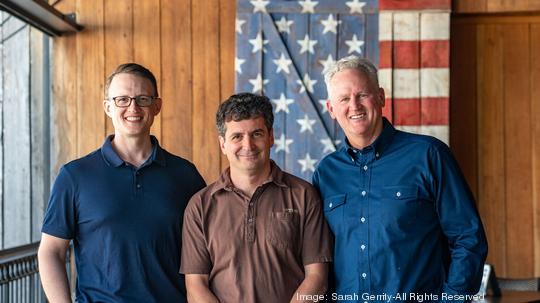
Placemakr
This company started this year, and its five-year overall run, as a markedly different entity — one named WhyHotel, offering pop-up hotel rooms in new apartment buildings as they leased up. It was hit hard by the pandemic, slashed its staff and reassessed. Then in March, co-founders Bao Vuong and Jason Fudin announced its rebranding, expansion into longer-term property and apartment management, and a $90 million raise, its biggest ever, to help it acquire a planned $1 billion worth of properties in two years while it pushes into such markets as Nashville, Miami and New York. Today, it’s back up to 200 people and looking to grow.
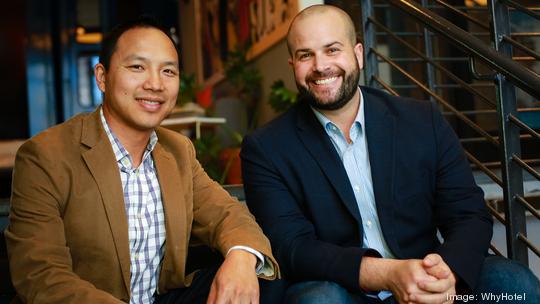
Knead Hospitality & Design — Blazer winner
Few industries were hit harder by the pandemic than restaurants, but you wouldn’t know that by Knead Hospitality’s past year — it more than doubled in size to 700-plus employees, added nine new locations and grew revenue by 75% from the prior year. It garnered headlines with pandemic-era policies such as vaccination incentives, four-day workweeks and mental health benefits. And co-founders Jason Berry and Michael Reginbogin — who also found time to marry and have their first baby last year while running one of the region’s largest LGBTQ-owned companies — are still mapping out new outposts for 2022.
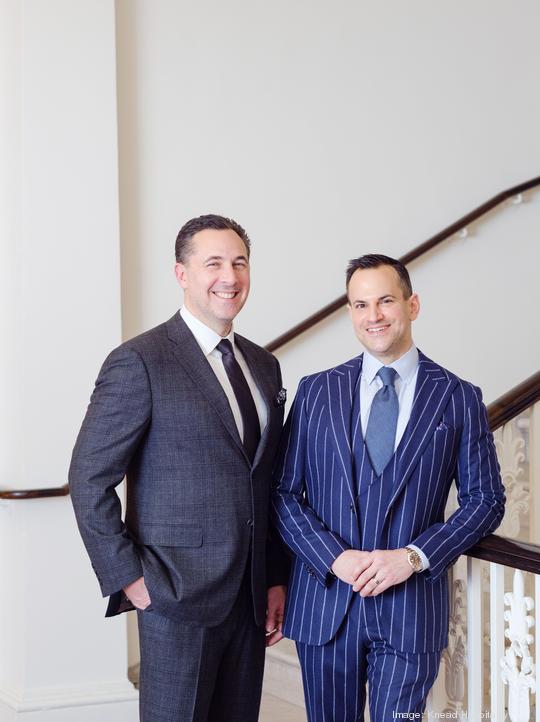
CarpeDM
The Woodbridge dating app startup is on the younger side, at only 4 years old — but it had a big fourth birthday. It celebrated with a new flagship product aimed at connecting Black female professionals with their soulmates, an oversubscribed preseed round and a run at high-profile accelerators, including being named to the second cohort of women-owned firms undergoing the Techstars Founder Catalyst program in partnership with JPMorgan, as well as the seventh cohort with Baltimore’s Conscious Venture Labs, whose fund invested in the company. Co-founder and CEO Naza Shelley, who started the company with best friend and fellow Howard University alum Sali Hama, was recognized as one of DCA Live’s 2022 Red Hot Entrepreneurs.

Curbio
It may dabble in a long-standing industry, home renovation, but Curbio’s tech twist and pay-at-closing philosophy caught megainvestor Revolution Growth’s eye. The D.C. venture fund led a $65 million Series B round for the Potomac company in January, roping in fellow investors Camber Creek of Rockville, Comcast Ventures, Brick & Mortar Ventures and Second Century Ventures, among others. The deal brought its lifetime funding up to $93 million, as it ventured into seven new markets, from Richmond to Raleigh, North Carolina, with plans to double its revenue and up its headcount by 68% by year’s end to at least 175 people.
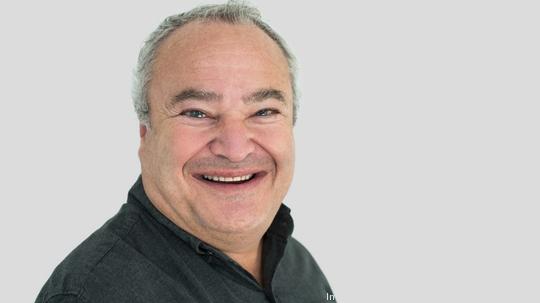
Energy, Logistics & Construction
Ion Storage Systems
As energy demands grow, this Beltsville battery maker hopes to step in. Ion Storage Systems, which develops solid state lithium metal batteries, received $30 million in investments led by Clear Creek Investments of Solana Beach, California; VoLo Earth Ventures of Snowmass Village, Colorado; and San Francisco’s Alsop Louie Partners to create a manufacturing business to, now, produce those batteries. Led by CEO Eric Wachsman, the spinoff from the University of Maryland’s Maryland Energy Innovation Institute expects to fulfill contracts with defense and aerospace customers that will begin generating revenue next year.
Eyrus
The D.C. jobsite data platform, focused on the energy and construction industries, raised $12 million in Series A funding in February from lead investor Spring Mountain Capital, as well as Autodesk, Motley Fool Ventures in Alexandria and Fuel Venture Capital to help it grow internationally. The company is led by co-founders Hussein Cholkamy, its chief operating officer and a former regional director at Perkins & Will and managing partner at Siena Square Development, and CEO Alexandra McManus, who spent nearly two decades at Gordian and, last year, was named one of Inc. magazine’s Female Founders 100.
AutoSled
Brothers and auto dealership industry insiders David and Dan Sperau started Autosled in 2019 as a faster way to ship vehicles for transporters, dealers and buyers. After raising a few million, the Rockville company hit a turning point in March when it received a $5 million investment from SolarCity founder Lyndon Rive and College Park investor Dave Baggett, among others. This year, the brothers also recruited a new chief technology officer, new business development manager and, most notably, new CEO in one of the firm’s board members, former SolarCity and Tesla exec Leon Keshishian — a high school friend of the founding duo. Keshishian took the CEO’s reins from David with plans to hire up and quadruple its $1 million in revenue.
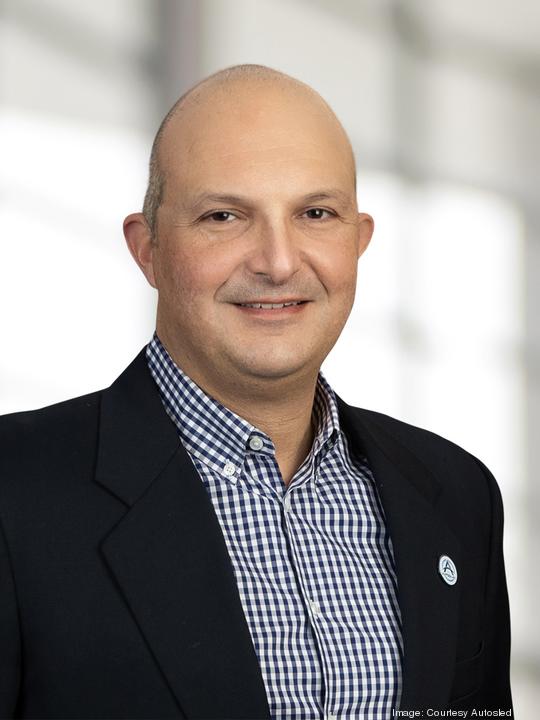
Electrify America
Expect to hear Electrify’s name quite a bit going forward. The Reston shop has big names behind it and, now, some seriously big money. The subsidiary of Herndon-headquartered Volkswagen Group of America has sold a minority stake to fellow German behemoth Siemens AG for a “low triple-digit-million dollar” investment in a round totaling $450 million in June. A Siemens exec gained a board seat with the raise, which values the company at $2.45 billion. It hits the gas on Volkswagen’s plan to expand Electrify America’s network of charging stations to 1,800 sites and 10,000 “ultra-fast chargers” by 2026.
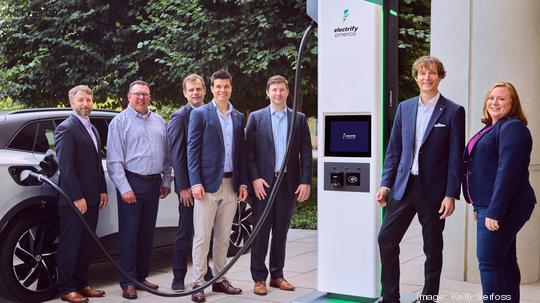
Inspiration Mobility
The D.C. company more than doubled its venture intake — and that’s saying a lot when it started up last November with a $200 million commitment from founding investor ArcLight Capital Partners LLC. The latest $215 million infusion in May came from investors Macquarie Asset Management and Ferrovial SA to fund the purchase of electric vehicles and development of EV charging equipment and other infrastructure to build out its network. With two new execs, including a chief technology officer who was an aerospace engineer working in mission control at NASA, CEO Josh Green is hoping to offer its fleet to more customers, beyond Revel, Ferry and European-based UFODrive.
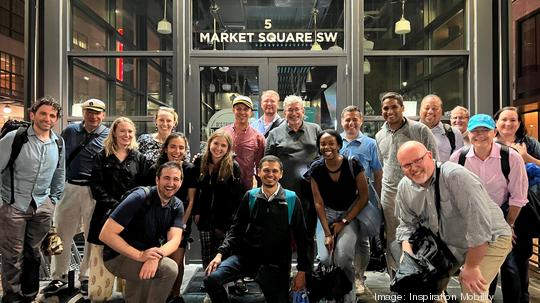
Robotic Research — Blazer winner
The Clarksburg autonomous and robotic systems company was already one of the region’s fastest-growing companies in 2020. Now imagine its speed with another $228 million in hand from a Series A funding round in December from such high-profile names as SoftBank Vision Fund 2, Crescent Cove Advisors, Henry Crown and Co., Luminar Technologies Inc. and Chevy Chase private equity firm Enlightenment Capital, which focuses on the government contracting sector. Robotic Research, which serves several government and military agency clients, was founded in 2002 by CEO Alberto Lacaze, who holds 100-plus patents in robotics technology.
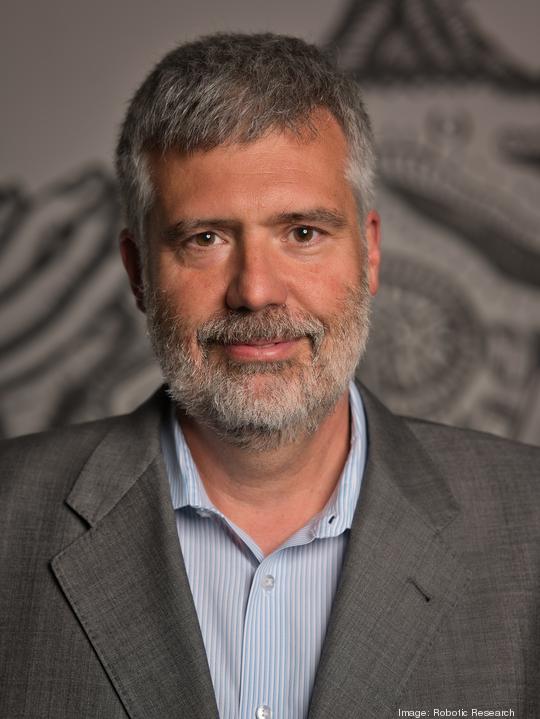
Finance
Zimbali Networks
The co-founders of Zimbali Networks have experience in cybersecurity, retail payments, corporate finance, international law and diplomacy — not to mention degrees from four of the nation’s top universities. CEO Cylton Collymore spent time at the Federal Reserve Bank, State Department and Meta, while COO Daniele Jean-Pierre is a lawyer who worked at USAID and as a diplomat in Africa and the Caribbean. Together, they started the Web3 fintech that specializes in digital currency to increase access to capital. It’s launching its payments app this year, received funding from 1863 Ventures, graduated TechStars and Outlier Ventures in London, and is raising $2.5 million in preseed funding.
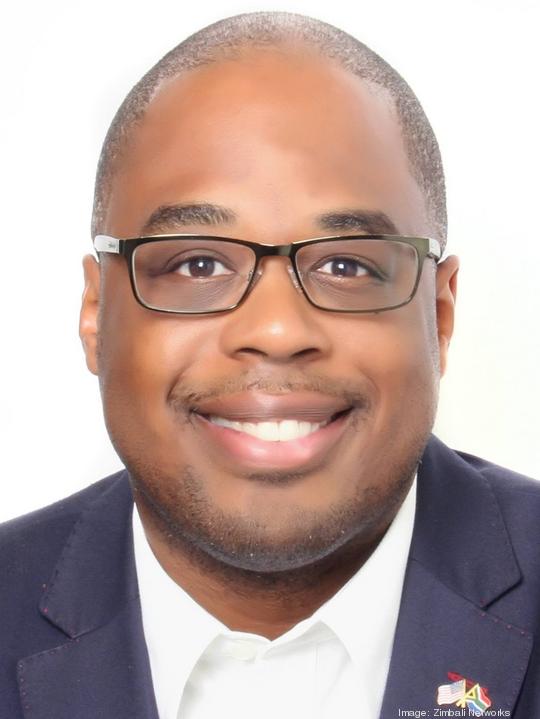
Kamsa
Kamsa is a 5-year-old company that saw its fate turn around during the pandemic, when it launched its software platform in mid-2020 to help clients pay employees fairly. It’s logged 200% annual revenue growth since its birth — it declined to disclose numbers — allowing it to remain self-funded as it ramps up sales and marketing for its compensation management software. The Rockville company, led by CEO Lola Han and pronounced “KUM-sah,” which translates to “appreciation” in Korean, has worked with more than 500 global companies, including Spotify, Peloton, Porsche Digital and MasterClass and now serves in the current class for Google for Startups Accelerator for women founders.

RealAtom — Blazer winner
This company provides something you don’t see often enough — women in the real estate finance industry. Co-founders Yulia Yaani, CEO, and Chief Technology Officer Masha Sharma are rolling out a new commercial real estate lending tool for the Arlington fintech, closing in on $2.5 million in new funding ahead of a larger raise they’re planning in the next year. Its existing software services yielded upward of $10 billion worth of commercial loan applications last year with plans to double this year. Plus Yaani, during her free time, runs nonprofit Ukrainian Help Hub to help refugees flee to Denmark to escape the war with Russia.
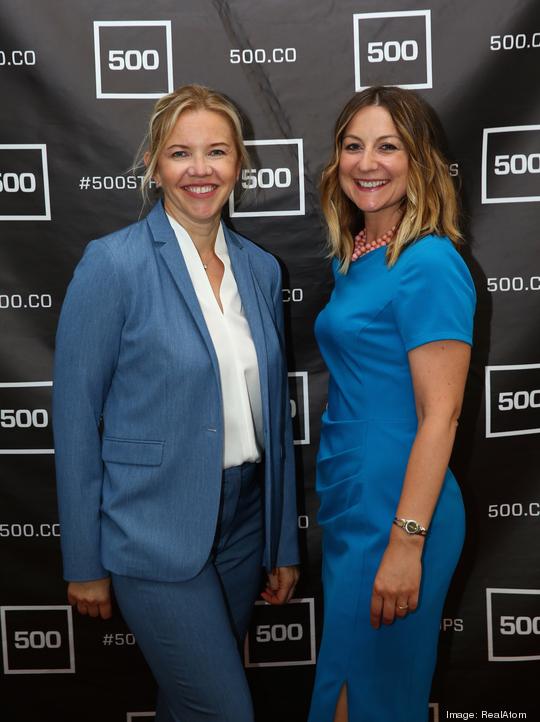
Wagestream
Wagestream has scored the dual wins of a massive investment, at $175 million this past spring, and a planned U.S. headquarters expansion from Arlington into what it hopes will be a D.C. home triple the size. It plans to also double its headcount to up to 50 employees by the end of this year. The company, whose app offers lower-wage workers an alternative to high-interest payday loans, received an investment from QED Investors, helmed by Capital One Financial Corp. alum Nigel Morris. The company was founded in 2018 by CEO Peter Briffett and Chief Technology Officer Portman Wills.
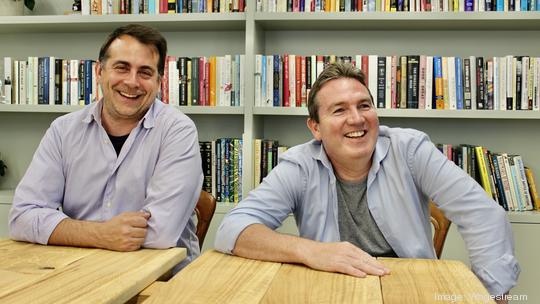
Wellthi Technologies Inc.
An alum of Halcyon’s Opportunity Intensive program, Wellthi Technologies, formerly Invest Sou Sou, offers a savings platform that partners with community banks to help users meet savings goals. CEO Fonta Gilliam, a former State Department diplomat and finance specialist and Deloitte management consultant, had helped the U.S. open a women’s business center in Africa and women and small businesses across Africa and Asia access hard-to-reach funding. Today, she’s partnered with Discover and Mastercard to offer credit cards in global countries to those seeking more capital. Last fall, Wellthi was also selected to participate in Northwestern Mutual’s fall 2021 Black Founder Accelerator program.
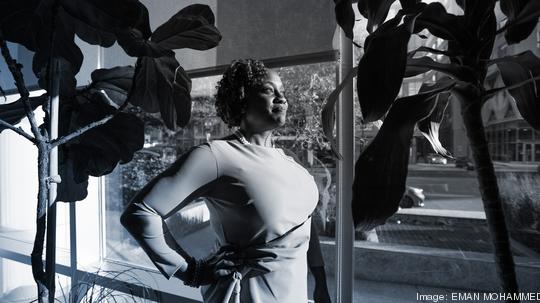
Funders
Dcode
As much as Dcode helps fund other companies, mostly government contractors that participate in its accelerators, it’s seen a considerable amount of money coming in itself. It’s raising $50 million through its 2-year-old venture capital arm, Dcode Capital, to double the number of fundings it fuels. It also recently won its largest-ever contract, $45 million from the Department of Defense, to provide tech advisory services, executive coaching and workforce training to military branches — a win it expects to more than double its revenue and boost its headcount by 25% this year.
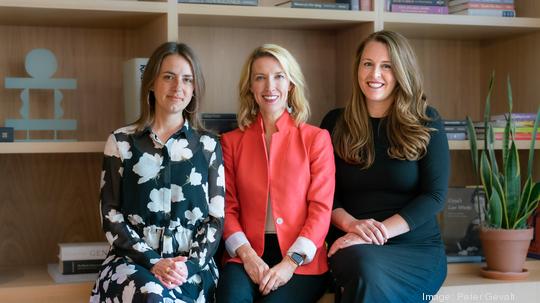
NCRC Community Development Fund
As a community development financial institution, NCRC CDF has been funding Black and brown businesses since before it was a national agenda item. A subsidiary of D.C.’s National Community Reinvestment Coalition, NCRC CDF was a top recipient of federal Covid relief spending, with $1.8 million, and a major conduit of the Paycheck Protection Program, with $1.12 million in loans entirely to businesses run by Latino, Black, immigrant or female CEOs. A Wells Fargo Open for Business Fund grant allowed it to funnel another $10 million to help underserved businesses keep their doors open. Now the organization, dubbed one of Fast Company’s most innovative companies in the world for 2022 and led by Executive Director Marisa Calderon, is piloting a new small business training program.
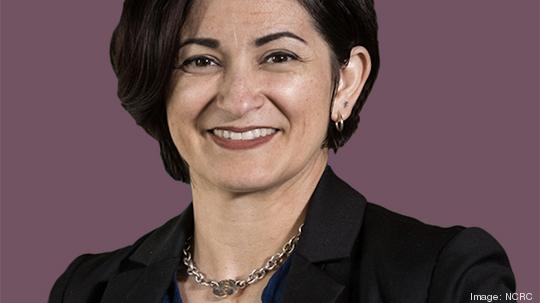
Perfectly Pitched
This Sterling company is a bit younger than we normally honor in our Fire Awards, but ironically, it’s helping other companies perhaps older than it to hone their presentations and pitches to garner more funding. The year-old firm was started by Heather Lawver, who’s been leading community and activist groups since age 13, but was still told she needed a male co-founder to access dollars. Her response? To partner with the likes of Halcyon and StartOUT to help women and men of color, LGBTQ+ and disabled entrepreneurs win dozens of pitch competitions and gain $8 million in combined funding in the last year alone.
Hull Street Energy
You may not hear much from this quiet Bethesda private equity firm, but it’s because its dollars do all the talking. And the latest takeaway was Hull Street Energy’s new, $1.1 billion oversubscribed institutional fund, its second-ever and one that’s double the size of its first launched a few years ago. That initial $500 million fund is now fully deployed after the firm bought hydroelectric assets, thermal power plants and solar projects across the U.S. The female-helmed Hull Street Energy, founded and led by Managing Partner and Goldman Sachs alum Sarah Wright, has already since been putting its second fund’s investments to use, mostly in energy-related companies, including Canadian firm SunGrid Solutions, a battery energy storage company.
Momentus Capital
The Arlington organization is looking to live up to its name. It formed and rebranded after Capital Impact Partners, a community development financial institution led by CEO Ellis Carr, combined with Venture Lending Technologies and, before that, CDC Small Business Finance, both San Diego fintech firms. It now boasts nearly $3 billion in a fused portfolio with $23 billion worth of community development financing flowing out to underserved entrepreneurs. Capital Impact Partners had just last month launched a $20 million loan fund for wards 7 and 8 projects and administers Amazon.com Inc.’s program to develop more real estate professionals and developers of color.
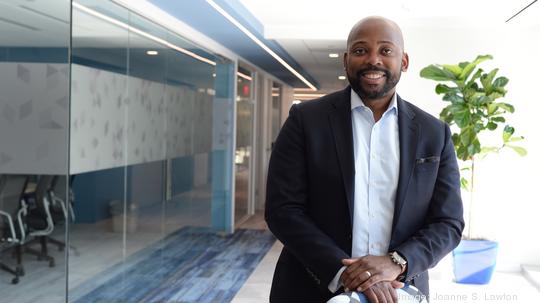
1863 Ventures — Blazer winner
Melissa Bradley has become a household name nationwide, and it’s in no small part due to her work at D.C.-based 1863 Ventures. In the last 18 months, the firm has invested more than $2 million in startups owned by Black and brown professionals nationwide. The venture firm, whose own flagship fund has invested in 13 portfolio companies around the country, is partnering with more organizations to spread its wings, and dollars, further, while it plans to staff up its community resource team.
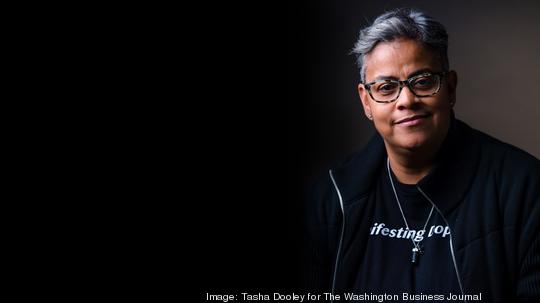
Health
Rose Health
The D.C. mental health startup is personal for founder Kavi Misri — it’s addressing an ailment he knows far too well himself. Today, he’s built out a patient engagement and monitoring platform and is working to raise $7.5 million in new funding, half of it already committed, to build out the product, while more than doubling his 23-person staff in the next year. That includes recruiting for a new C-suite team and expanding into new markets as it pilots a new software platform for youths. Based on its pipeline, the company said it expects about $2.3 million in 2022 revenue.
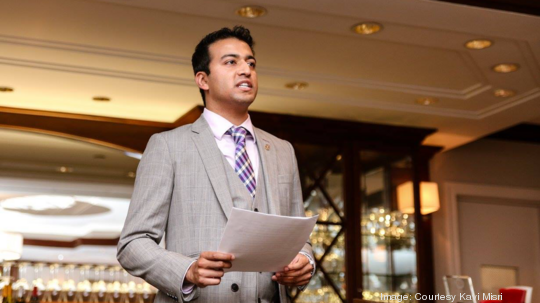
IndyGene U.S. AI
To change health outcomes, one must often start at the beginning, and that’s where IndyGene has its eye — on making whole genome sequencing accessible to all patients and on diversifying normally white male-dominated clinical trials. In just the last year, IndyGene won a $100,000 Johnson & Johnson challenge, opened a lab at the JLabs facility on the Children’s National Research and Innovation Campus, received $1.5 million in angel funding and mapped out plans to open a second lab in Cape Town, South Africa. It comes from a personal place for co-founder and CEO Yusuf Henriques, a scientist who was originally scouring for a cure for his twin daughters’ rare genetic eye disease before starting up the firm with Chief Scientific Officer Bradford Wilson.
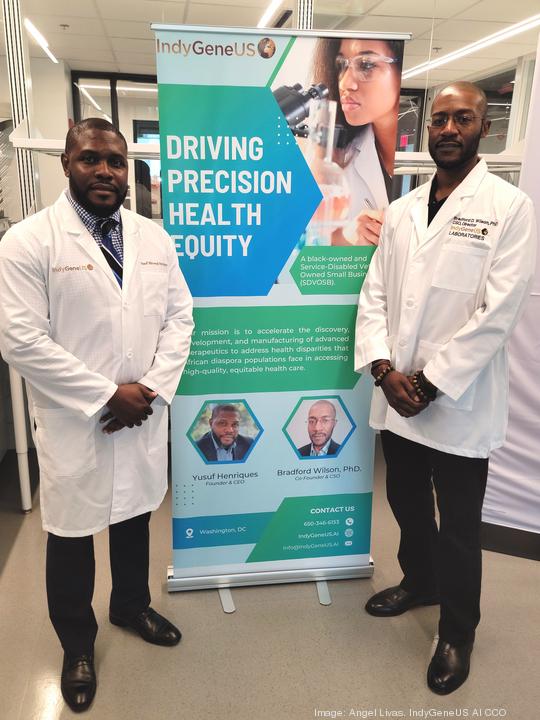
Innerlight Holistic Healing
Sometimes it’s about having a hot cup of healthy, organic tea. How does Haneefa Willis-Johnson know? She’s literally written the paper on the benefits of substances like licorice root to combat gastrointestinal inflammation, and contributed to several analyses of brain MRI studies. Willis-Johnson, a biochemist who had stints at the National Institutes of Health’s Neuroimmunology and Neurovirology Division and George Washington University School of Medicine and Health Science’s Resiliency and Wellbeing Center, founded Innerlight Holistic Healing on a simple premise: Organic looseleaf tea can have healing effects — and is a reliable business model. As proof, her startup, in June, won a pitch competition, $10,000 grant and a vendor contract with a Hyatt boutique hotel brand.

54gene — Blazer winner
The D.C. company garnered headlines when it raised $25 million in a September round led by Cathay AfricInvest Innovation Fund out of San Francisco and including other investors from New York to Nigeria, where 54gene has another location. The company, founded in 2019, is looking to include sequencing of the African genome in clinical and medical research and create a biobank of genetic data to bring more equity to drug discovery. The latest round brought its total funding to
$45 million and resulted in a host of new executive hires to join founder and CEO Abasi Ene-Obong, a cancer researcher and former management consultant who made Time magazine’s list of transformative innovations and Fast Company’s list of most innovative companies.
Femly
Founder Arion Long built Femly on the need for organic, plant-based cotton alternatives to the long-running tampons and pads used during menstrual cycles, coupled with a personal hygiene products dispenser to provide them to restrooms nationwide. The company, in Halcyon’s Opportunity Intensive program, made $1 million in revenue last year, but expects that to balloon to $13 million this year with new high-profile partnerships with the Baltimore Ravens to place her products in the M&T Stadium’s bathrooms and backing from Overlooked Ventures, musician Pharrell Williams and $10,000 from BeyGood, Beyonce’s fund to support Black-owned businesses.

Software, Cyber and Data
Hawkeye 360
The Herndon data analytics company was founded in 2015 as a spinoff from Boston venture creation firm Allied Minds. This year, under the purview of CEO John Serafini, the company launched more satellites to quadruple its capacity to detect, characterize, geolocate and download radio frequency data for clients. That expansion follows a $150 million Series D funding round that included a $5 million investment from Reston defense contractor Leidos Holdings Inc. and plans to grow to about 200 employees this year. But Serafini has also been focused on events very much on Earth, helping lead an effort among space industry companies to raise nearly $1 million in aid to war-torn Ukraine.
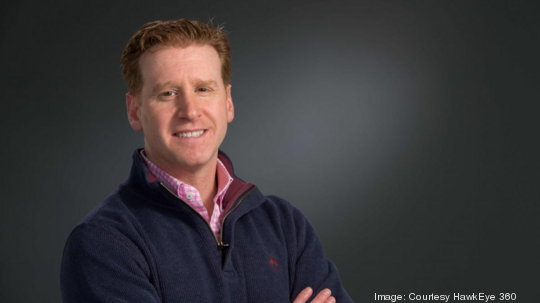
Shift5
As of February, Shift5, an Arlington cybersecurity company, had scored back-to-back funding rounds within four months that totaled $70 million led respectively by New York venture firms 645 Ventures and Insight Partners. The firm was founded by former members of the U.S. Army Cyber Command, including CEO Josh Lospinoso, a serial entrepreneur who had founded Baltimore cyber firm RedOwl Analytics before selling it to Raytheon-owned Forcepoint in 2017 for $54 million. This year, he’s hoping to outpace last year’s 85% staff growth that brought it to 65 people by February.
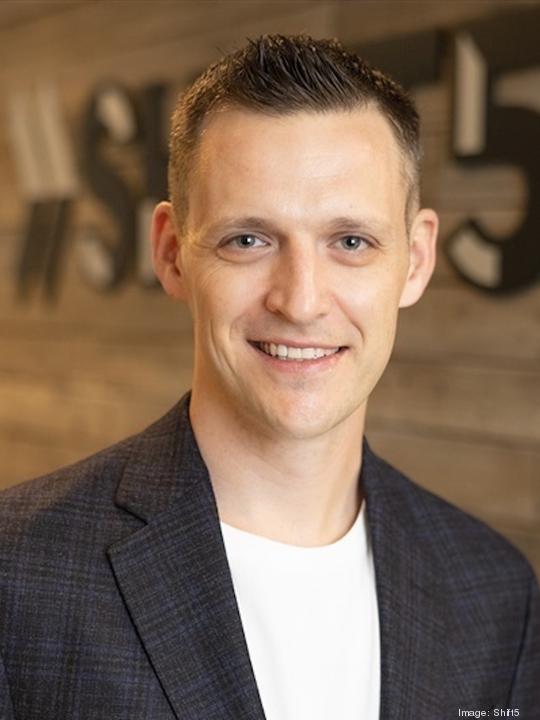
Virtru
Virtru began the year by nearly doubling its total venture intake with a $60 million round that included blue-chip names such as New Enterprise Associates of Chevy Chase and Bessemer Ventures of San Francisco. Another investor, former Department of Homeland Security Secretary Michael Chertoff, joined the D.C. data security company’s board, one of a few leadership adds this year that also included former Sonatype exec Matt Howard as its new chief marketing officer to grow the company beyond its 7,000 clients, including Netflix, Verizon and TripAdvisor. It hopes to double its 150-strong roster this year, said CEO John Ackerly, who founded the firm with his brother, Will, a former National Security Agency data security architect.
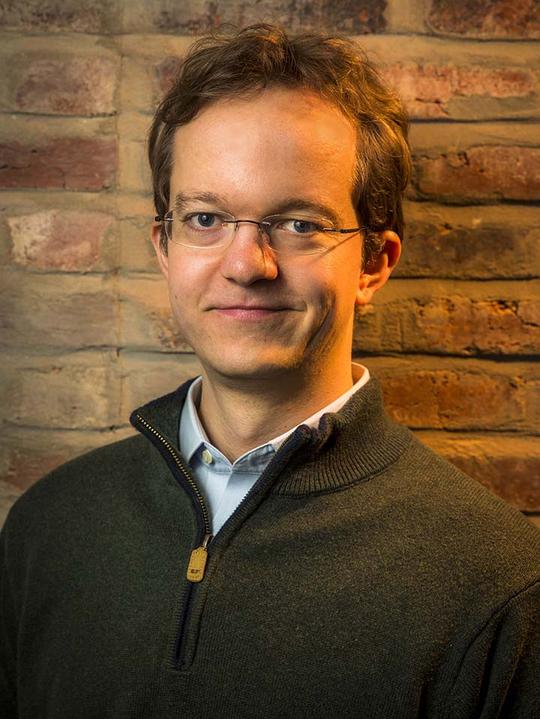
Class Technologies — Blazer winner
This D.C. company is the latest venture from serial entrepreneur Michael Chasen, but it’s probably gained traction the fastest, tapping into a newly remote learning universe. Class Technologies, which quickly built a Zoom-based education platform, raised a total $160 million in its first year, including a $105 million megaround in July 2021 with backers ranging from Revolution’s Rise of the Rest and SoftBank Group to NFL quarterback Tom Brady and U2 manager Guy Oseary. And in a full-circle move, Chasen used some of the funding to buy a flagship learning platform back this past June from his first venture, Blackboard.
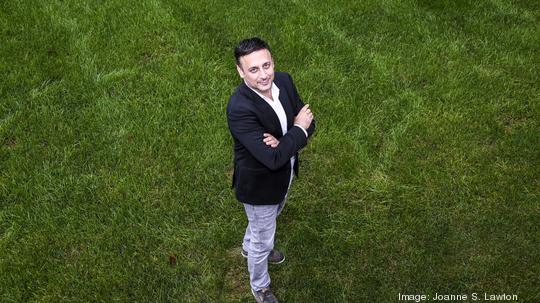
StartOps
Owner Lauren Bryant found her calling during the pandemic, starting her ed-tech company in the past year to offer learning and operations software and coaching support to schools, particularly public charter schools in the District, to offer more equitable experiences for marginalized students. In its first year, it said, it has partnered with nine D.C. schools and earned $200,000 in revenue while also expanding into Indianapolis. And Bryant, former founding director at National Charter Collaborative and an operations and finance director at Sustainable Futures Public Charter School, is working to grow that list through such partners as CityBridge Education and National Charter Schools Institute.
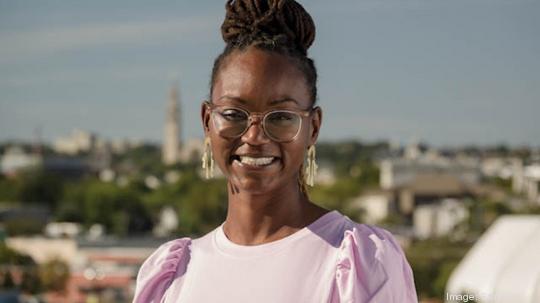
Federated Wireless
A funding frenzy paid off for Federated Wireless, a software-as-a-service firm that provides private wireless services to clients. Its latest raise topped $70 million from well-known investors such as Cerberus Capital Management and Allied Minds. The Series D round, its second venture haul since moving to its current Ballston headquarters in 2019, brought its lifetime funding up to $213 million. The company, led by CEO Iyad Tarazi, had crossed the 100-person mark by last May with plans to grow further.
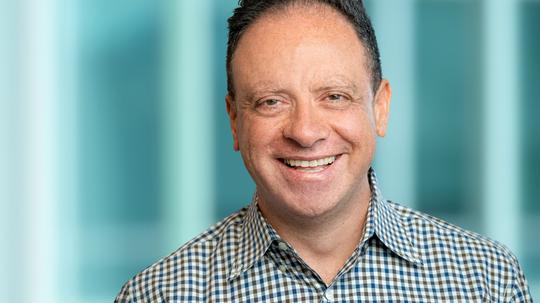
AI Squared
June marked a key $6 million seed funding round for the year-old D.C. artificial intelligence startup, lassoing in Chevy Chase’s New Enterprise Associates and Los Angeles’ Ridgeline Partners as investors. The company’s low-code platform aims to make web apps smarter for other companies, while tapping into the head-spinning demand for AI and machine learning technology. Founder Benjamin Harvey — a data scientist who underwent the MIT-Harvard Program in Health Sciences and Technology, spent a decade at the National Security Agency and taught courses at George Washington, Georgetown and alma mater Bowie State universities — now hopes to raise $30 million in a Series A round and eclipse $1 million in revenue this year.
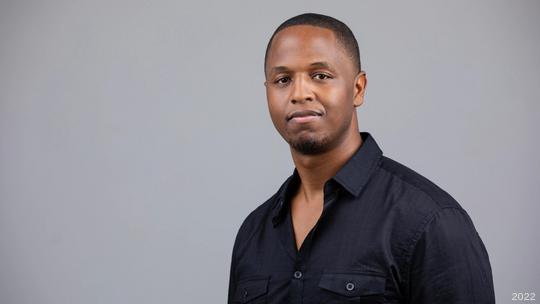
Nailbiter
The Herndon startup announced in December $13.3 million in new funding from U.S. Boston Capital Corp. to help speed up its global expansion, improve its augmented reality technology and develop new products that offer consumer behavioral metrics to consumer packaged goods companies, of which 13 of the top 20 are Nailbiter’s clients. Co-founder and CEO Amishi Takalkar, who previously had stints at Frito-Lay Inc., AOL and AARP, has said her 7-year-old company is “recruiting heavily” for a team that populates its current offices in New York, Chicago, London, Amsterdam, Mumbai, Singapore and Dubai.
More: Check out our Fire Awards for Richmond-area companies
Where are they now?
Oh, what a difference a year or two can make. We decided to spread the love for this year’s Fire Awards honorees, so there aren’t any repeat winners from the last two years, but we couldn’t help but note some standouts from 2020 and 2021 that have performed exceedingly well since. Most raised nine figures and are unicorns today, meaning their company valuations top the billion-dollar mark, while one went ahead and went public. If these companies were on fire then, well, it seems they’re burning ever brighter today.
Aledade
- Headquarters: Bethesda
- Fire Awards honoree: 2020
- Leadership: Farzad Mostashari, founder and CEO
- What it does: Health care consulting firm that helps independent physician practices implement care models that compensate them based on health results, rather than just fees for services rendered
- What it did: Raised $123 million in funding in June, bringing its total lifetime funding to more than $420 million and its valuation to about $3.1 billion. That also allowed it to open new offices in New York, San Francisco and Durham, North Carolina, joining an Austin, Texas, office it inherited when it acquired Iris Healthcare in January. It eventually plans to hire another 300 people this year and employ 1,000 across its expanding footprint.
Arcadia
- Headquarters: D.C.
- Fire Awards honoree: 2020
- Leadership: Kiran Bhatraju, founder and CEO
- What it does: Provides tech and community solar platforms to help residents and businesses access and monitor their utility data and build energy products
- What it did: Raised $200 million in May in a round led by JPMorgan Asset Management’s Sustainable Growth Equity Team, layering atop a prior $100 million funding last fall and coupled with an acquisition of Urjanet and back-to-back buys in 2021 of San Francisco’s Nanogrid Technologies PBC and Houston’s Real Simple Energy. The now $1.5 billion-valued firm hired a former Rent the Runway and Yahoo exec as its new chief financial officer last year and a former Twilio exec as chief product officer this past spring, saw its revenue grow 155% from 2020 to 2021 and expanded with a New York office this year.
Arcellx
- Headquarters: Gaithersburg
- Fire Awards honoree: 2020, 2021
- Leadership: Rami Elghandour, CEO
- What it does: Develops cell therapies for cancer and autoimmune diseases
- What it did: Held an initial public offering to go public in February, selling nearly 9.5 million shares at $15 apiece to raise $128 million in net proceeds. That came within a year of its raising $115 million in Series C funding, and the biotech recently expanded into Rockville with a new 60,000-square-foot lease on King Farm Boulevard.
Caribou Financial
- Headquarters: D.C.
- Fire Awards honoree: 2020, 2021
- Leadership: Kevin Bennett, CEO
- What it does: Provides auto refinancing and an online car insurance marketplace
- What it did: Raised an oversubscribed Series C funding round of $115 million led by Goldman Sachs, valuing the company at $1.1 billion in May. The company, formerly MotoRefi and newly headquartered in D.C., grew this past spring from around 40 employees to about 500, including a slew of new C-suite execs, and is still hiring.
Expel
- Headquarters: Herndon
- Fire Awards honoree: 2020
- Leadership: Dave Merkel, CEO
- What it does: Cybersecurity services
- What it did: Raised a $140.3 million round led late last year by CapitalG, the growth fund for Alphabet Inc., in partnership with Paladin Capital Group, a D.C. investment firm focused on the cybersecurity sector. It was the second pandemic-era raise for the firm, which raised a total $257.9 million in venture funding since its founding roughly six years ago and said it scored a billion-dollar valuation.
Interos
- Headquarters: Arlington
- Fire Awards honoree: 2020
- Leadership: Jennifer Bisceglie, founder and CEO
- What it does: Uses an artificial intelligence platform to help assess risks and manage clients’ supply chains and business relationships
- What it did: Raised a $100 million Series C round from venture royalty, including San Francisco’s NightDragon, Kleiner Perkins of Menlo Park, California, and Venrock of Palo Alto, California, earning it unicorn status. It followed that mammoth number with a $6.5 million raise from female tech investment group Broadway Angels, based in San Francisco, and reported annual revenue growth of 303% in 2020 and 2021.
Somatus
- Headquarters: McLean
- Fire Awards honoree: 2020, 2021
- Leadership: Dr. Ikenna Okezi, founder and CEO
- What it does: Offers a comprehensive care model for patients with chronic kidney disease and end-stage renal disease
- What it did: Closed a $325 million Series E round that valued the company at more than $2.5 billion early this year. The company has raised more than $500 million since its 2016 founding, including back-to-back $60 million rounds in 2020 and 2021. Soon after the Series E raise, Somatus bought up the assets of health care artificial intelligence platform Lumiata Inc. for undisclosed terms.
Upside Services
- Headquarters: D.C.
- Fire Awards honoree: 2020
- Leadership: Alex Kinnier, co-founder and CEO
- What it does: Offers mobile app with cash-back deals from grocery stores, restaurants, convenience stores and gas stations
- What it did: Raised its largest funding intake ever, at $165 million in a mix of debt and equity, in April as it rebranded from its former GetUpside name. That well more than tripled its prior $62.6 million raised since its birth, catapulting its valuation to $1.5 billion.